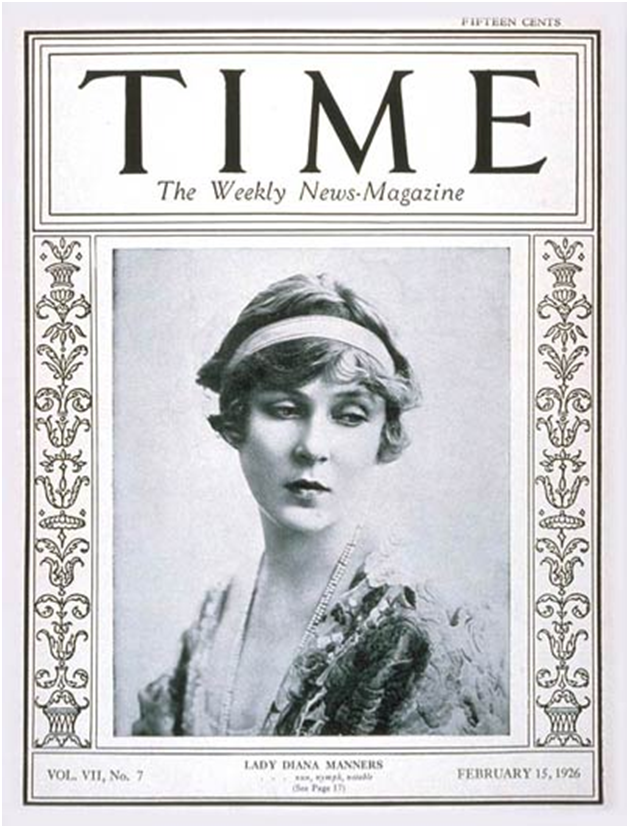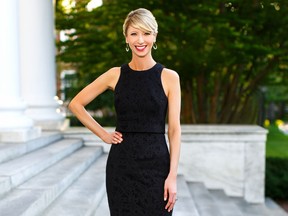As an entrepreneur, I value curiosity as a vital business trait. You never know where your curiosity will take you.
Case in point: this essay. Which has nothing to with business, but everything to do with being human.
Three degrees of
separation:
Let’s connect Orson
Welles, Winston Churchill, Napoleon’s sister, D.W. Griffith, and Gilligan’s
Island.
In preparation for my upcoming month in Paris, yesterday I started reading John Julius Norwich’s book: France: A History: from Gaul to de Gaulle. I didn't get very far.
I got stopped in the Preface, where the author, John Julius Norwich, talks about his various stints living in France – including while his father was Britain’s ambassador to France from 1944 to 1948. He describes life at the embassy (a palace formerly owned by Napoleon’s sister Pauline) as a glamorous salon frequented by the cultured and powerful. “The queen of it was the poetess – and my father’s mistress – Louise de Vilmorin, who would stay in the embassy sometimes for weeks at a time.”Wow.
No less startling was the next sentence. (Remember, I’m still on page 2.) “My mother, who had no conception of jealousy, loved her almost as much as my father did.”
Intriguing as French history may be, I immediately put down the book and picked up my phone to google these stunningly avant-garde artist/aristocrats. I swear, someday Netflix will make a movie about all this.
Let’s start with the poet. “Louise de Vilmorin was a novelist and poet and the most extraordinary of women. Married to a Hungarian count, her lovers included Antoine de Saint-Exupery, Orson Welles and Andre Malraux. But it was Duff Cooper, British Ambassador to France, during the 1940s, who was the love of her life.”
“Born 4 April 1902 in the family château at Verrières-le-Buisson, she was heir to a great French seed company fortune. She was afflicted with a slight limp that became a personal trademark.”
“Louise had four brothers: Henry (1903–1961), Olivier (1904–1962), André (1907–1987), and Roger (1905–1980), who was fathered by King Alfonso XIII of Spain.”
So, five minutes in, and we've already met Saint-Exupery (author of the beloved classic, The Little Prince), Orson Welles (wunderkind director of Citizen Kane), and a king of Spain.More on Louise’s love life: “As a young woman, in 1923, she had been engaged to novelist and aviator Antoine de Saint-Exupéry; however, the engagement was called off, even though Saint-Exupéry gave up flying for a while after her family protested such a risky occupation. Vilmorin's first husband was an American real-estate heir, Henry Leigh Hunt (1886–1972), the only son of Leigh S. J. Hunt, a businessman who once owned much of Las Vegas, Nevada. They married in 1925, moved to Las Vegas, and divorced in the 1930s.”
“Louise spent the last years of her life as the companion of the French Cultural Affairs Minister and author André Malraux, calling herself ‘Marilyn Malraux’.” (Pretty good pun, even for a famous poet.)
But getting to know Louise meant I now needed to know more about her ambassador paramour. Who was Duff Cooper, I wondered, and why was his last name different from that of his son? So back to Google we went.
Alfred Duff Cooper was a rogue and a statesman, incredibly bright, a deft writer and historian, and a disappointment to all. Wikipedia: “He was the only son of society doctor Sir Alfred Cooper (1843–1908), a surgeon who specialised in the sexual problems of the upper classes (his carriage was humorously known as “Cooper's Clap Trap”) and Lady Agnes Duff, daughter of James Duff, 5th Earl Fife and descendant of King William IV.”
Whoa.
Victorian shenanigans – and another
king.
At Oxford, “Cooper cultivated a reputation for eloquence and fast living and, although he had established a reputation as a poet, he earned an even stronger reputation for gambling, womanising and drinking.”
Cooper joined the foreign office (on his third try, Wikipedia snarks). But with WWI chewing up the bodies of young Englishmen, he joined the Grenadier Guards as a junior officer in 1917. “Cooper spent six months on the Western Front, during which, biographer Philip Ziegler writes, he proved himself ‘exceptionally courageous, resourceful, and a natural leader of men.’ He suffered a minor wound in the advance to the Albert Canal in August 1918, and was awarded the Distinguished Service Order for conspicuous gallantry, a rare decoration for a junior officer.”
His career off to a strong start, in 1919 Cooper marries journalist/actress/socialite Lady Diana Manners. (He met her at Oxford, and once wrote, “I hope everyone you like better than me will die very soon.”) Diana had appeared in the 1918 film, Hearts of the World, by legendary director D.W. Griffith, who called her “the most beloved woman in England.”Diana’s family initially opposed the match. (They had hoped Diana would marry the Prince of Wales.) Diana’s mother “thought Cooper a promiscuous drinker and gambler, without title, position or wealth.” Still, Diana couldn't be too off-put by liaisons dangereuses: while officially the daughter of the 8th Duke of Rutland, “she was widely believed—by herself included—to be the natural daughter of Harry Cust, a Belvoir Castle neighbour.”
Yes, the Victorians were pretty wild. (Cust is also reported to have slept with Margaret Thatcher’s grandmother.)
As the years went by, “Lady Diana tolerated Cooper's numerous affairs.” And there were many: Franco-American Singer sewing-machine heiress Daisy Fellowes, socialite Gloria Guinness, French novelist Louise Leveque de Vilmorin, and writer Susan Mary Alsop (then an American diplomat's wife, by whom he had an illegitimate son). The polo player 'Boy' Capel's wife Diana and fashion model Maxime de la Falaise were two more, although Lady Diana reportedly did not mind, explaining to her son: “They were the flowers, but I was the tree.”
With Diana’s money, Cooper entered politics, becoming friends and cabinet colleagues with the likes of Neville Chamberlain and Winston Churchill. In 1935, the scandalous scoundrel was named Secretary of State for War, and then First Lord of the Admiralty, where “he enjoyed high living on board the Admiralty yacht HMS Enchantress.”
Then Cooper went to Germany and witnessed a Nazi party rally. Realizing that Hitler was serious about conquering the civilized world, he resigned from the Cabinet to protest Chamberlain’s policies of appeasement (ie, “Let Germany re-arm, the English Channel will protect us”). Fellow Conservative MP Vyvyan Adams described Cooper's actions as “the first step in the road back to national sanity.”
Out of government, Cooper embarked on a lecture tour of the U.S., where he urged the democracies to stand firm against the dictatorships. German propaganda ranked Cooper with Churchill and Eden as Britain's most dangerous warmongers, and after war broke out Cooper sent his son – then John Julius Cooper – to study at Upper Canada College in Toronto.
(Cooper was widely criticized for the move, but let’s cut him some slack. Hitler’s enemies list was a real thing, and Cooper, who became Minister of Information in 1940, topped the charts.)
While in North America, young John Julius (named because he was born of a caesarian section, get it?) summered with the family of William S. Paley, the founder of CBS – an old-school robber baron (and another long-time womanizer) who redeems himself by championing a prime-time news show called 60 Minutes. (Paley’s also the guy who saved Gunsmoke from cancellation in 1967, resulting instead in the premature cancelling of Gilligan’s Island.)
In December 1943, with the Allies planning an invasion of France, Cooper became the British representative to the Free French – which meant he had to placate both Churchill and de Gaulle, two of the world’s most unmanageable people. A month after Paris was liberated in August 1944, he was named Britain’s ambassador to France.
Wikipedia just can't help pointing out: “He was to prove a very popular ambassador, with Lady Diana helping to make his term of office a great social success. Some contemporary eyebrows were raised at his willingness to entertain people with dubious records during the recent war, or his lack of interest at entertaining trade unionists.”
After retiring as ambassador, Cooper remained in Paris and wrote books, including one novel, about the Allies’ deception campaign around the invasion of Sicily – which the U.K. Cabinet tried (and failed) to block.
In 1952 Cooper was named to the House of Lords as Viscount Norwich, a name his son later adopted. Cooper's long-suffering spouse refused to be called Lady Norwich, claiming it sounded too much like “porridge.” She took out an ad saying she would stick with “Lady Diana Cooper.”
After Cooper’s death Philip Ziegler wrote that Cooper was “not totally successful in worldly terms, but never dull,” although he could be “arrogant, self-indulgent and selfish, and devoted far too much time and energy to wine, women and gambling.” Quite the epitaph!
But credit him this. In 2021, Cooper was posthumously awarded the Order of the White Lion, the Czech Republic’s highest decoration, for his opposition to the Munich Agreement in which Hitler carved up Czechoslovakia like a prize lamb.
John Julius never matched his father, in either infamy or high office. He called himself someone "whom his mother adored, and his father barely tolerated." But like his dad, he too attended Oxford and then joined the Foreign Service. He served in Yugoslavia and Lebanon and as a member of the British delegation to the Disarmament Conference in Geneva. When his father died at sea (of course!) in 1954, JJ inherited the “Viscount Norwich” title, and took his father’s seat in the House of Lords (until the rules were changed in 1999 to reduce the role of arbitrary aristocrats in running England’s, um, affairs).JJ wrote books on history and the arts, and served as chair of the Venice in Peril Fund, which helped save the Italian city from the rising waters of the Adriatic Sea. He also made documentaries for BBC Television, and hosted a quiz show for BBC Radio. One of his favourite sayings was, “When in doubt, say yes.”
JJ married twice and fathered two children, Artemis and Jason.
Oops. Make that three children. Turns out Norwich was also the father of Allegra Huston, born in 1964 of his five-year affair with American ballet dancer Enrica Soma. At the time, she was estranged from her husband: actor/director John Huston. (Winner of two Academy Awards, he directed The Treasure of the Sierra Madre, The African Queen, The Misfits, The Man Who Would Be King, Prizzi’s Honor, and Annie, a musical about orphans.)
By coincidence, Huston began his career playing the title character in a 1930 film called Abraham Lincoln – the second-last movie directed by D.W. Griffith.
Forty years later, Huston starred in The Other Side of the Wind, as an aging film director trying to stay relevant. The film was written and directed by Orson Welles.
Production began in 1970, and was finally finished (by Netflix!) in 2018.
Allegra is a writer (naturally) and has written a book on how she learned, at 12, the truth about her father. She described the day she met John Julius: “His manners were elegant and easy, as if he met his secret children every day of his life.” But over the longer term, as a reporter noted, “John Huston was sufficiently egocentric for the reappearance of his daughter’s biological father to make no difference.”“He completely ignored it,” said Allegra, “which was fine by me."
She explains the situation in her book, Love Child, by saying, “John Julius could be accurately referred to as my father, but I had only one dad.”
But Allegra's book compelled one Huffpost reviewer to begin her article with the sentence, "Thank God I'm not a Huston." The reviewere recounts how Allegra often spent weekends with her half-sister Anjelica Huston at Jack Nicholson's house, where Roman Polanski had sex with an underage girl, an event that led to his exile. At 13, she lived with Anjelica and Ryan O'Neal, who comes off as a terrorizing brute. "Even the 13-year-old had the sense to tell her sister, 'You don't have to stay with someone who treats you like that.'"
Does generational dysfunction ever end? “The sources of bad luck reside in the
unconscious,” opined John Huston. “We inflict it upon ourselves
as kind of a self-punishment.”
Allegra seems to summarize a century of recklessness and high achievement when she writes: “Love Child is the story of a childhood fractured by tragedy, of a motherless girl who never quite feels she belongs. It is my search through the unreliable certainties of memory for the widely adored mother I never knew, and my quest to create a single family out of these odd-shaped pieces, a family which finally comes together at the christening of my son in the Rio Grande.”
John Julius Norwich passed away in 2018, just after finishing his last book, France: A History: from Gaul to de Gaulle.
He dedicated it to his mother.
And I am still only on page 2.











